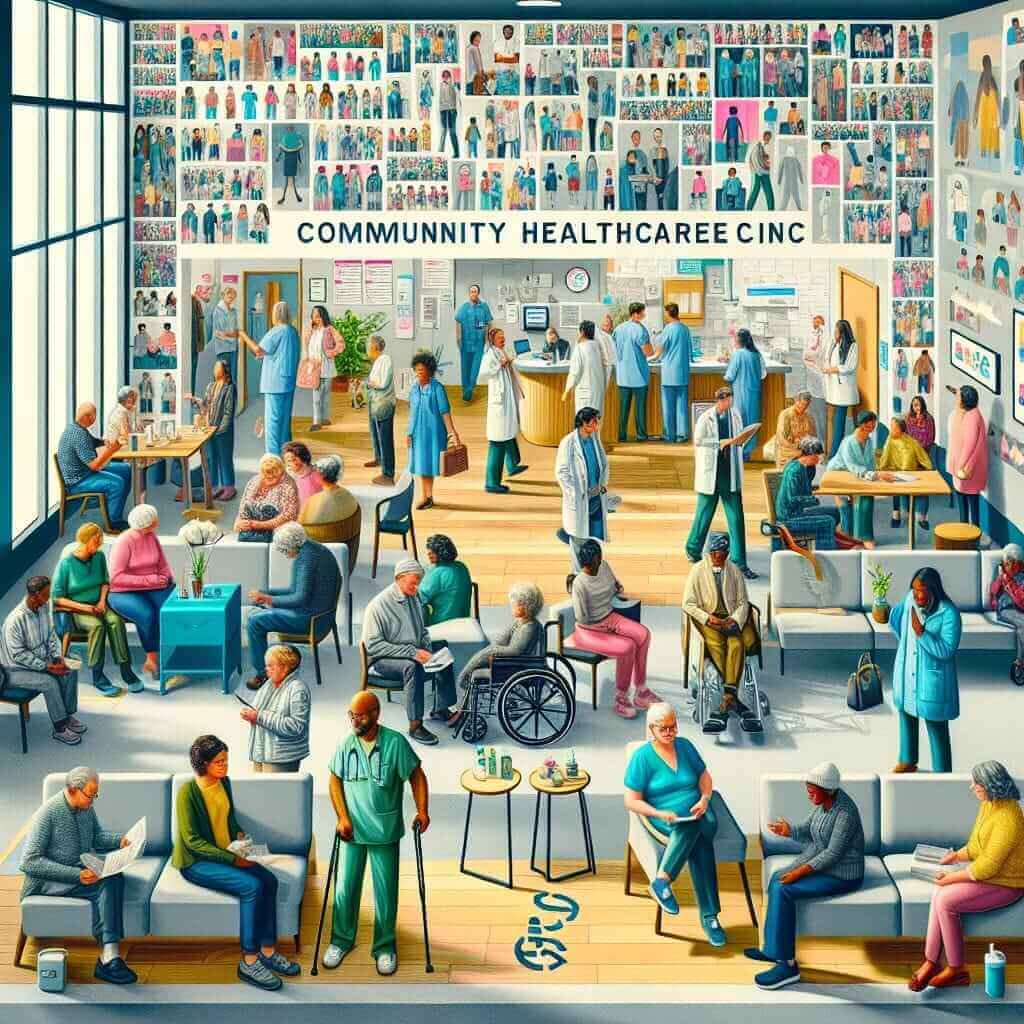Community-based healthcare is a significant topic that frequently appears in IELTS Writing Task 2, and rightly so. As healthcare systems worldwide face increasing pressures, the importance of community-based solutions becomes more apparent. In this article, we will explore the importance of community-based healthcare, create relevant IELTS Writing Task 2 prompts, and provide a comprehensive model essay, alongside critical insights to consider when tackling this subject.
Understanding the Importance of Community-Based Healthcare
Community-based healthcare refers to health services that are primarily offered within a community rather than through centralized, large-scale institutions. The emphasis is on accessibility, preventive care, and addressing health inequalities. This approach is particularly vital in reaching underserved populations who may face barriers to accessing traditional healthcare facilities.

Realistic IELTS Writing Task 2 Prompts on Community-Based Healthcare
Prompt 1:
Some people believe that community-based healthcare programs are essential in ensuring equal access to healthcare for all. To what extent do you agree or disagree with this statement?
Prompt 2:
Discuss the benefits and challenges of implementing community-based healthcare programs in urban and rural areas.
Prompt 3:
In contemporary society, community-based healthcare is increasingly viewed as a more sustainable model compared to traditional healthcare systems. Do you agree or disagree? Provide reasons for your answer.
Detailed Analysis of a Selected Prompt
Chosen Prompt
Discuss the benefits and challenges of implementing community-based healthcare programs in urban and rural areas.
Analysis of the Prompt
- Understanding the Question: You need to discuss both the advantages and disadvantages of implementing community-based healthcare programs. The focus should be on both urban and rural settings.
- Task Response: Make sure to address all parts of the question. Provide a balanced view by discussing both pros and cons.
- Ideas and Arguments: Your essay should include specific examples of community-based healthcare initiatives, comparisons between urban and rural settings, and a discussion on sustainability.
Model Essay
Title: The Dual Facades of Community-based Healthcare: Urban vs. Rural Implications
Introduction
Community-based healthcare has emerged as a pivotal approach to addressing health disparities and enhancing accessibility. This essay will examine the benefits and challenges associated with implementing community-based healthcare programs in both urban and rural areas.
Benefits of Community-Based Healthcare in Urban Areas
One significant advantage of community-based healthcare in urban areas is the ease of access to a large population. Urban centers often have better infrastructure, enabling more efficient service delivery and outreach. Programs such as vaccination drives and health education campaigns can quickly reach a broad demographic, improving overall public health outcomes. Moreover, urban areas typically have a higher concentration of healthcare professionals, facilitating the establishment of diverse and specialized community health services.
Challenges in Urban Settings
However, urban areas also face unique challenges. The high population density can lead to overstretched services and long waiting times, diminishing the effectiveness of community-based programs. Additionally, the socio-economic diversity in cities means that tailored approaches are necessary to meet the varied needs of different communities, often requiring significant resources and meticulous planning.
Benefits of Community-Based Healthcare in Rural Areas
In rural settings, community-based healthcare can significantly bridge the gap left by the scarcity of traditional healthcare facilities. Mobile health units and telemedicine initiatives can bring essential services to remote locations, ensuring that residents do not have to travel long distances for basic medical care. These programs can also foster a stronger community spirit, as local healthcare workers often share a close rapport with residents, enhancing trust and compliance with health interventions.
Challenges in Rural Settings
Despite these benefits, rural areas face formidable obstacles in implementing community-based healthcare. The lack of infrastructure, limited financial resources, and a shortage of healthcare professionals hinder the effectiveness of these programs. Moreover, geographical barriers can impede the regular delivery of services, making consistent healthcare provision challenging.
Conclusion
In conclusion, while community-based healthcare presents numerous benefits, including increased accessibility and tailored care, it also faces significant challenges, particularly concerning infrastructural and resource constraints. Both urban and rural areas can benefit from these programs, but tailored strategies and adequate support are crucial for their success. Encouragingly, ongoing advancements and innovative approaches in community-based healthcare hold promise for more equitable and effective health solutions.
Word Count: 360
Key Considerations When Writing about Community-Based Healthcare
- Balanced Viewpoint: Always address both benefits and challenges to provide a well-rounded argument.
- Specific Examples: Use real-life examples of community-based healthcare programs to support your argument.
- Comparative Analysis: Highlight differences and similarities between urban and rural implementations.
- Language Precision: Ensure clarity and accuracy in your language. Use connectors and cohesive devices to link ideas smoothly.
Essential Vocabulary
- Accessibility (noun) /ˌæksəˈsɪbɪlɪti/: The quality of being easy to obtain or use.
- Disparities (noun) /dɪˈspærɪtiz/: Marked differences or inconsistencies.
- Outreach (noun) /ˈaʊtˌriːʧ/: An effort to bring services or information to people where they live or spend time.
- Socio-economic (adjective) /ˌsoʊʃiː.oʊˈɛkənɒmɪk/: Relating to or concerned with the interaction of social and economic factors.
- Geographical (adjective) /ʤiːəʊˈɡræfɪkl/: Relating to the natural features, population, industries, etc. of a region.
- Telemedicine (noun) /ˈtɛlɪmɛdɪsɪn/: The remote diagnosis and treatment of patients by means of telecommunications technology.
- Infrastructure (noun) /ˈɪnfrəˌstrʌktʃər/: The basic physical and organizational structures and facilities needed for the operation of a society or enterprise.
- Compliance (noun) /kəmˈplaɪəns/: The action or fact of complying with a wish, command, or set of rules.
Conclusion
Community-based healthcare is a vital component of modern healthcare systems, offering significant benefits as well as facing considerable challenges. Understanding these aspects is crucial for writing a high-scoring IELTS essay. Additional related prompts to practice include examining specific community-based initiatives and their impacts on public health or comparing different models of community-based healthcare worldwide.
For further reading on similar topics, consider these resources:
By honing your ability to discuss such multifaceted topics, you will be well-prepared for a variety of questions in the IELTS Writing Task 2.